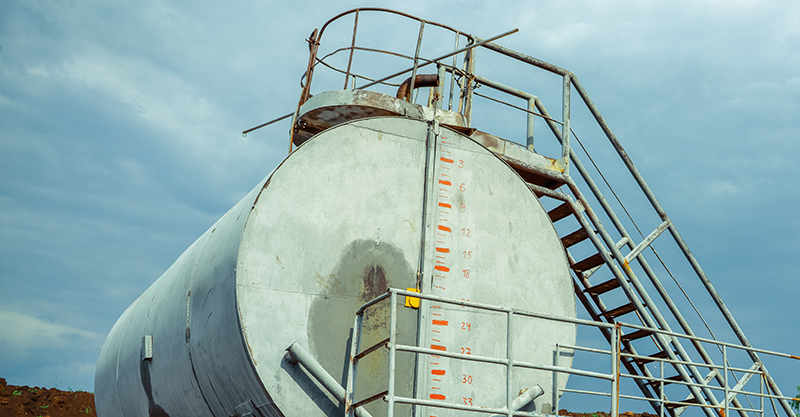
Did you know that frac tanks are the most commonly used large vessels for storing liquids across a wide variety of industries? Although frac tanks are most widely known for their use in the gas and oil industry, they also serve a great deal of other purposes. In essence, frac tanks are mobile steel storage tanks that are used to hold water and other liquids. They are typically box shaped and are approximately the same size as the trailer on an 18-wheeler truck. Frac tanks hold up to 21,000 gallons of liquid, which also equals 500 barrels.
They contain multiple vales that make it significantly easier to hook up to a vast variety of pumping options. Frac tanks have a single rear axle, which enables the tank to be easily moved by a tractor or winch. They can also be manufactured with heating elements that enable the devices to be used in colder climates where the contents in the standard, unheated models would freeze. So without further ado, the following information will show you how frac tanks can benefit your business or municipality.
Frac Tanks Are Perfect For Storing Water
Frac tanks are often used to store water and other liquids. They can be utilized for portable water storage, which makes it fairly simple to create a reliable water source no matter where that water source is needed. The water can be utilized for a great deal of uses. The frac tanks provide business owners with the proper security that is required to keep the water safe and sound. They also are designed to avoid leaks, which can prevent related fines. Since the average frac tank holds upwards of 21,000 gallons, they supply enough water to cover a wide variety of operations.
Frac Tanks Are Ideal For Storing Liquid Fertilizer
Frac tanks are a cost-effective way to store liquid fertilizer and liquid nitrogen that are used for agricultural purposes. For example, a frac tank is approximately 1/3 of the price of a vertical fiberglass tank. It is also extremely important to note that frac tanks can increase productivity since they can be easily transported between areas of the farm or from farm to farm. There is even a slope top tank that is specially designed with a shorter length in order to allow for tighter turning and easier maneuvering on farm roads.
Frac Tanks Are Great For Storing Runoff Water
Municipalities that are subjected to heavy amounts of rainfall can suffer from flash flooding. Water resistant surfaces, such as concrete and asphalt can also prevent rainwater from absorbing into the soil. If the water runoff is not controlled, it may results in the overflow of raw sewage. When the raw sewage flows into city streets, homes, and places of business it posses a direct threat to both human, and environmental health. Water runoff can also result in the deposit of dangerous chemicals, debris, and other pollutants into local bodies of water.
This poses a direct threat to water quality. The EPA’s Clean Water and Safe Drinking Water acts are targeted towards municipalities in order to reduce storm water runoff that directly results in contamination. Frac tanks are the perfect solution. They not only store storm water, but also provide you with the ability to treat the storm water prior to processing it through the water filtration system.
In conclusion, frac tanks are beneficial for a number of uses. However, it is incredibly important to properly maintain frac tanks in order to keep them in good working order. That means your frac tanks should be properly cleaned by an experienced professional on a regular basis. This will help to avoid unnecessary rust, rot, and leaks that can prove to be costly.
Jolin Paving & Excavating, Inc. is your New England connection—Serving Boston Massachusetts, Southern NH, VT & ME as well as Northern CT & RI since 1952. Contact us to learn more today.
continue reading






